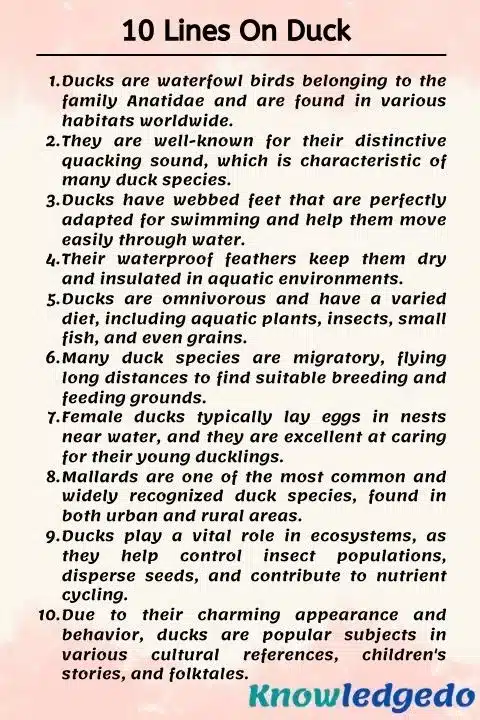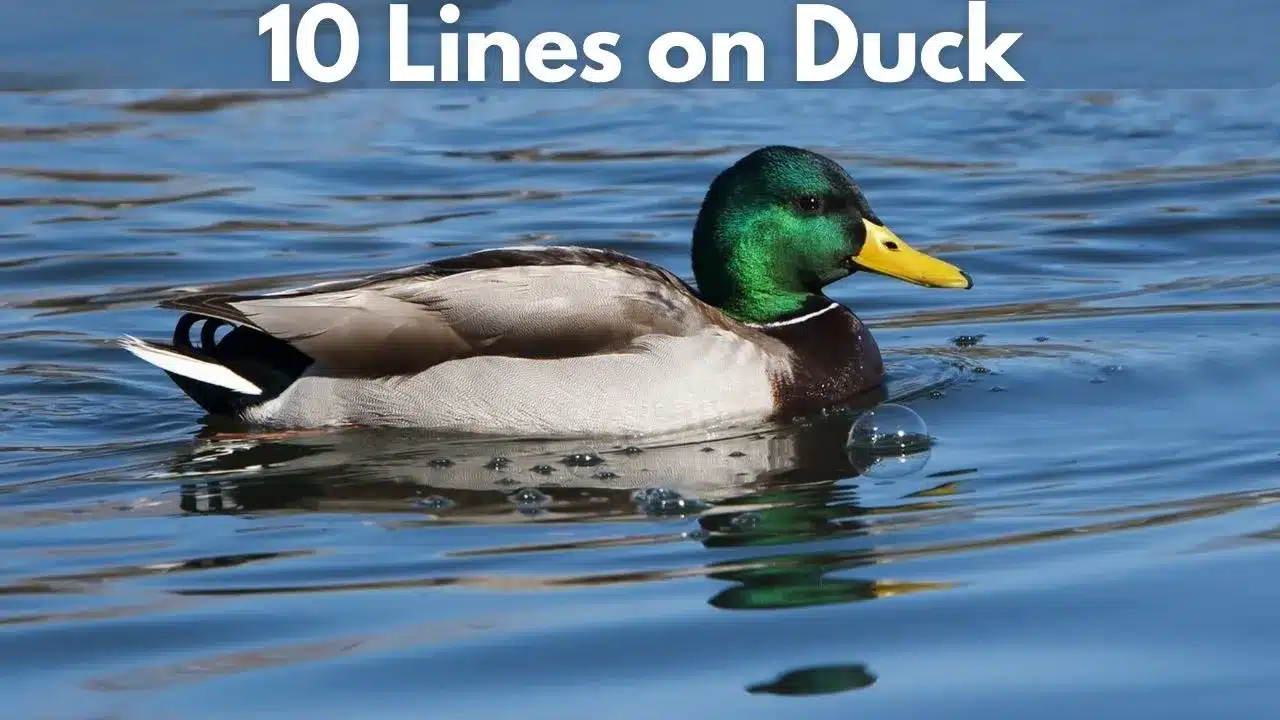Today, we are sharing 10 lines on Duck in English. This article can help students who are looking for information about 10 lines on Duck. These lines are straightforward and easy to remember. The level of difficulty is moderate, making it accessible for any student to write on this topic.
This article is generally useful for class 1,class 2,class 3,class 4,class 5,class 6,class 7,class 8,class 9,class 10,class 11,class 12
10 lines on Duck
1) Ducks are waterfowl birds belonging to the family Anatidae and are found in various habitats worldwide.
2) They are well-known for their distinctive quacking sound, which is characteristic of many duck species.
3) Ducks have webbed feet that are perfectly adapted for swimming and help them move easily through the water.
4) Their waterproof feathers keep them dry and insulated in aquatic environments.
5) Ducks are omnivorous and have a varied diet, including aquatic plants, insects, small fish, and even grains.
6) Many duck species are migratory, flying long distances to find suitable breeding and feeding grounds.
7) Female ducks typically lay eggs in nests near water, and they are excellent at caring for their young ducklings.
8) Mallards are one of the most common and widely recognized duck species, found in both urban and rural areas.
9) Ducks play a vital role in ecosystems, as they help control insect populations, disperse seeds, and contribute to nutrient cycling.
10) Due to their charming appearance and behaviour, ducks are popular subjects in various cultural references, children’s stories, and folktales.

5 lines on Duck
1) Ducks are waterfowl birds known for their webbed feet and distinctive quacking sound.
2) They are excellent swimmers, thanks to their specialized feet that allow them to glide effortlessly through the water.
3) Ducks have waterproof feathers that keep them dry while they dive and forage for food in aquatic environments.
4) Female ducks build nests near water to lay eggs and care for their adorable ducklings.
5) Ducks are an important part of various ecosystems, contributing to seed dispersal and insect control.
FAQ
Ducks are omnivorous and have a varied diet that includes aquatic plants, insects, small fish, crustaceans, and grains. They use their specialized bills to filter food from the water and also graze on the land.
While not all ducks migrate, many species are migratory. The migration patterns vary depending on the species and their geographic location. Some ducks fly long distances between their breeding and wintering grounds to find suitable habitats and food sources.
Ducks have a unique gland near their tails called the uropygial gland, which produces an oil that they spread over their feathers using their beaks. This oil acts as a natural waterproofing agent, allowing ducks to stay dry while swimming. It forms a protective layer that prevents water from soaking into their feathers.
